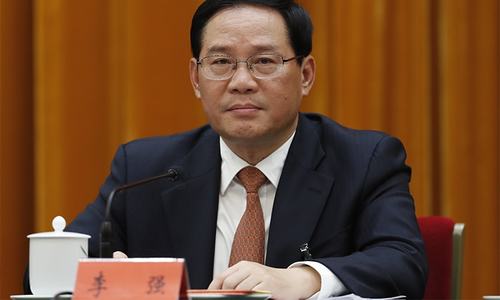BEIJING: One of President Xi Jinping’s most trusted proteges, Li Qiang is almost certain to become China’s next premier after he was unveiled as number two in the Communist Party hierarchy on Sunday.
The Shanghai party boss leapfrogged over two other candidates seen as having more traditional qualifications for the role — a shock move confirming that Xi has stacked the party’s Politburo Standing Committee, the highest echelon of power, with his allies.
Li’s chances of getting such a high-ranking role were seen to have been endangered by the harsh two-month Shanghai lockdown he oversaw earlier this year, in which the financial hub’s 25 million residents struggled to access food and basic medical care.
“If proof were needed that loyalty trumps meritocracy in Xi’s China, Li Qiang’s elevation provides it,” said Richard McGregor, senior fellow at the Lowy Institute in Sydney.
“Li might be quite capable, and may make a good premier, but it is hard to see how he got there other than through Xi’s personal favour.”
Although it is not unusual for former Shanghai chiefs to be promoted to the party’s top ranks, unlike almost all previous premiers, Li does not have experience at the central government level as a vice premier. But he has rich local administration experience, having taken top leadership roles in the affluent provinces of Zhejiang and Jiangsu.
Crucially, he served as Xi’s chief of staff between 2004 and 2007 while he was the party boss of Zhejiang. His rapid promotions since then reflect Xi’s high degree of trust in him.
He was parachuted into Jiangsu by Xi in 2016 after a corruption scandal took down several provincial officials, before becoming party secretary of Shanghai the following year. In his capacity as premier, Li would also act as the head of China’s cabinet, the State Council.
The role traditionally involves responsibility for the day-to-day running of the country, as well as macroeconomic policy.
“(Li) was seen as a business-friendly local leader but it’s questionable whether these skills will translate well to overseeing macroeconomic coordination and regulatory agendas as premier,” said Neil Thomas, senior China analyst at Eurasia Group.
He would take the position at a time when the world’s second-largest economy is faltering. Last week, the release of China’s quarterly economic data was delayed without an official explanation.
Published in Dawn, October 24th, 2022














































